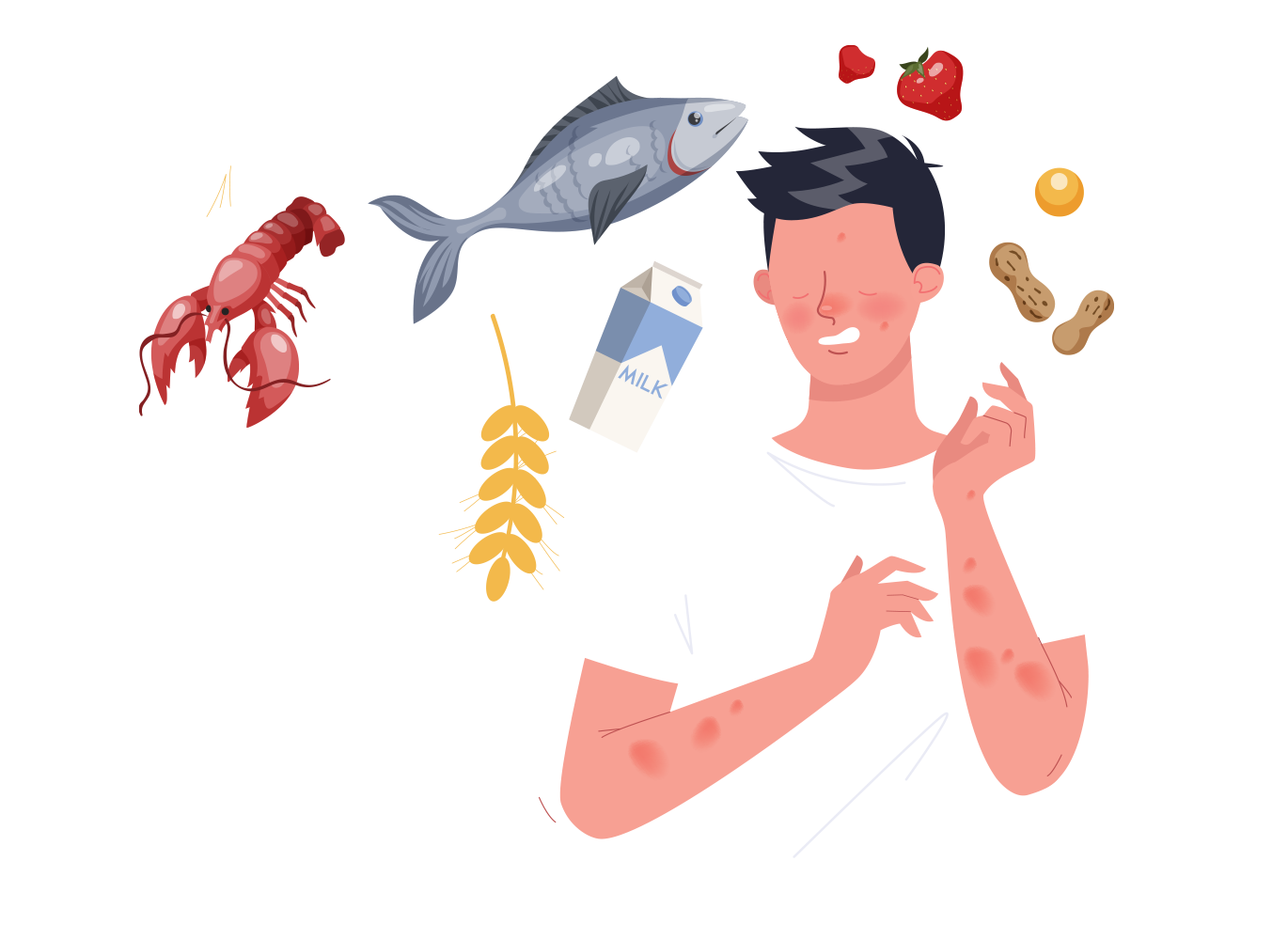Eczema Care Online is for people with eczema and families caring for a child or baby with eczema.
Eczema Care Online is for people with eczema and families caring for a child or baby with eczema.

A healthy well balanced diet is important for keeping your skin and body healthy. The usual advice about what food to eat as part of a healthy diet is the same for people with eczema.
Many people with eczema worry that they should avoid certain foods. But usually people find that this doesn’t make a difference. Things, such as soap, are more likely to make your eczema worse
One of my friends has eczema and she told me to cut out dairy. She did it and said that it had helped her eczema. I tried to cut it out for about 6 weeks but it made no difference at all to my eczema. It wasn’t much fun to do either
EllieA food allergy happens when your body reacts straight away to certain foods you have eaten. You may start to wheeze, get tummy ache, or throw up. Your face could swell up or you could get lumps (hives) on your skin. Your eczema may also flare up during or soon after a reaction.
Food allergies are slightly more common in people with eczema, but are not the cause of eczema in most cases. It is more likely that eczema in babies makes them more likely to have food allergy later, not the other way around.
A small number of people with eczema find that certain foods can make their eczema worse. This is a delayed type of food allergy. Reactions happen 1-2 days after you have eaten the food, instead of straight away. These reactions are caused by a different part of the body’s immune system than food allergies. It is more difficult to test for delayed reactions.
The next few pages will give you advice on how you can tell whether you have a food allergy or if certain foods make your eczema worse.
Peanuts, milk and eggs are the most common foods that cause reactions.
Other foods that can cause an allergy include wheat, fish, shellfish, tree nuts, soya, lentils and some fruits.
Some foods can make eczema worse because they have things in them that irritate the skin, rather than causing an allergic reaction. For example, strawberries, citrus fruits (e.g. oranges), and tomatoes can cause an eczema flare-up on the face if they touch your skin, or if the saliva stays on the skin.
Putting a greasy barrier, like white petroleum jelly, on the face and neck before and after eating these foods can help with this.
Some people find that alcohol can make their eczema worse. This is because alcohol opens up the small veins in your skin that carry your blood, which can make you itch more.
Food supplements are tablets, liquids or powders that contain nutrients that you can add to a normal diet. For example, vitamins.
There is no clear research evidence to show that food supplements help with eczema.
You will find links to more information about these topics in the ‘other resources’ section, which you can get from the ‘more about treatments’ menu above